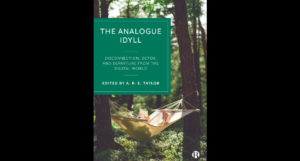Post Office Horizon scandal should lead to urgent consideration of how court system deals with litigants in person, study says

The study was carried out by the experts running the Post Office research project and the Evidence-Based Justice Lab
The Post Office Horizon scandal is an example of how the legal profession and the courts need to properly consider lawyer and court roles when they defend themselves, a new report says.
Researchers have also warned of the influence on justice of well-resourced lawyers who see their role as “to win” at all costs when court rules emphasise the overriding principle for courts is to promote proportionate justice. The difficulties can be particularly acute when one side is unrepresented.
Experts closely analysed the case of Lee Castleton, whose story was portrayed in the recent ITV series Mr Bates vs The Post Office, and the strategy employed by the barrister acting against him, Richard Morgan, now a KC.
Mr Morgan’s “Chancery” strategy influenced the Post Office’s actions in other legal cases against sub postmasters. It involved strictly focusing on the fact they had signed off accounts as accurate, a paper test based on a accounts signed under considerable pressure from the Post Office, rather than proving the robustness of the Horizon system. It then fell to Mt Castleton, who was denied evidence that might have helped him, to try and prove the computer system did not work. A legal argument shielded the Horizon system from scrutiny.
In the Bates litigation, portrayed in the TV drama, Mr Justice Fraser famously decried a similarly superficial approach as equivalent to saying the world was flat.
The study says Mr Morgan “might be described as the first flat earther’. He was the first to suggest the argument, which allowed the Post Office to present the case that Horizon data could be presumedcorrect as a matter of law because sub postmasters had signed accounts which, in reality, they were disputing the validity of.
The working paper, by Richard Moorhead and Sally Day from the University of Exeter Law School and Karen Nokes, from the Faculty of Laws, UCL, is produced as part of their ESRC-funded study into the Post Office Scandal.
The paper criticises the quality of the available available guidance for lawyers, produced by the professions, around dealing with litigants in person.
Professor Moorhead said: “Our analysis of Lee Castleton’s case shows how misaligned the desire to win and justice can become. The problems are particularly acute when one side is unrepresented. There is an question here whether the lawyers were overly influenced by a legitimate, if opportunistic, strategy.
“The courts need to think long and hard about allowing artful legal argument to shift evidential burdens onto those least able to prove their case. Courts are supposed to enable both sides to put their case not make it harder for one side. They were persuaded to do so by the arguments presented by the Post Office against an unrepresented defendant and without the full evidence being before them.
“We hope the paper offers a vehicle for lawyers, in particular, to reflect on the dangers of case strategy overcoming their ability to reflect objectively and independently on matters such as disclosure and case presentation. A desire to win to may have driven an arguably unfair strategy and failures to disclosure relevant evidence.”
The researchers do not allege professional misconduct, but do explore the questions a professional regulator would need to consider were they to investigate. They suggest regulators should look closely at this case, including the role of Mr Morgan.
Professor Moorhead said: “He defends himself on a basis that the written evidence does not support. He said to the ]inquiry, ““I was asked to prove the case that I did on the basis of documents signed by Mr Castleton, whose truth were not challenged by Mr Castleton”. Written evidence shows plainly that Mr Castleton agreed he had signed the documents, as he was required to do under his contract, but that he disputed the vlaiditey of those document. A professional regulator should look much harder at what has happened here, because his explanation to the Inquiry does not appear to be an accurate reflection of what actually happened.”



